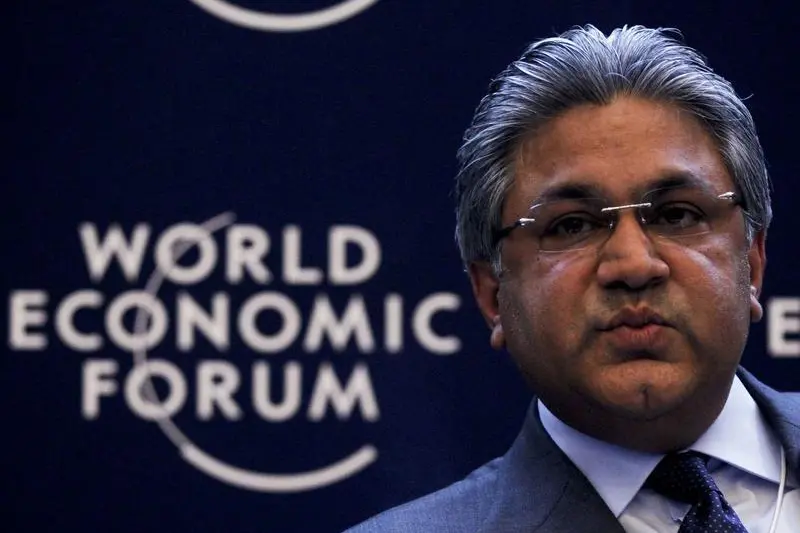PHOTO
One VIP was missing from the opening night of Art Dubai last March. The emirate’s annual culture fest normally kicked off with its biggest patron, Arif Naqvi of private equity giant Abraaj Group, glad-handing dignitaries, saying a few words over the mike, sometimes leading off a song or two for the culture-vultures enjoying the glamorous bash.
This year, Naqvi has more urgent things to do. Just a few weeks before, it had emerged that some of the biggest investors in the $1 billion health care fund were unhappy about the way $200 million of their money had been misdirected away from hospital projects in Africa and Asia.
No cash was missing, it had been returned to the investors, and an internal probe had been launched to find out what had gone wrong. But big-name investors like the Bill and Melinda Gates Foundation and the World Bank were angry about the arbitrary way in which their cash had been treated, and wanted blood.
That opening night Naqvi was in his native Pakistan, trying to push through a deal to sell K-Electric, a power generator in Karachi. Abraaj had been trying to exit the utility for years, but bureaucratic hold-ups and a tough negotiating stance from potential Chinese buyers had delayed it.
By now, Naqvi was desperate to sell to ease Abraaj’s growing liquidity problems. The problems in Pakistan were not directly linked to the misallocation of funds from the health care fund, but suddenly Abraaj, which had declared assets under management of nearly $14 billion last year, needed funds to keep the business afloat.
Last week, Naqvi had to abandon the attempt to save the company he had founded in 2002 in Dubai, when the firm filed for provisional liquidation in the Cayman Islands, the home to its holding company.
It was nemesis for one of Dubai’s great success stories. Abraaj had grown to be the largest indigenous emerging market (EM) private equity group, matching the slick money men of New York and London. It had become a leading light of the Dubai financial scene, and one of the most high profile players in the emirate’s financial hub, the Dubai International Financial Center (DIFC).
In the process, Naqvi had become a guru of the emerging markets business, regularly appearing on star panels at the World Economic Forum in Davos to argue the need for governance, accountability and transparency in the financial world.
Now he is trying to retrieve as much of investors’ money as possible, by selling off its investments, while fighting off allegations that he kept investors in the dark for too long as Abraaj’s finances deteriorated to the point of no return.
A definitive review of the Abraaj business by accounting firm Deloitte found that funds had “commingled” — swapped between funds without authorization but that there had been no fraud or embezzlement.
Naqvi, an honorable man who ended up in an impossible situation — even if largely due to his own failings — will want to put it right, as far as he can after the huge value-destruction that Abraaj has suffered.
In some ways, the end was hastened by circumstances outside his control, influenced by the unpredictable nature of business relations in the Gulf.
The first fund to file for Abraaj to be wound up in the Cayman Islands was the Kuwaiti Public Institution for Social Security which is owed $100 million by Abraaj.
Some observers could not understand why the Kuwaitis would want to destroy their chances of maximizing recovery by effectively busting Abraaj, but a previous financial scandal at the fund had hardened attitudes there and the Kuwaitis were in no mood to negotiate.
Separately, another regional partner of Abraaj, the Jafar family of Sharjah, decided they could not back Naqvi any longer, and sold their debt to US asset manager, the Auctus Fund, which also filed legal action in the Cayman over $100 million of debts. Naqvi’s sure touch with business relationships and the Gulf financial power structure seemed to have deserted him.
Investors and creditors will get some of their debts returned now that a liquidation process has been started, but it is very unlikely they will be covered to the full extent, even if potential buyers are willing to take on Abraaj’s private equity portfolio, where valuations have been dramatically impacted by the drip-feed of bad news from Abraaj.
For Dubai, the DIFC and emerging market investment in general, the damage will also be significant and long lasting. Many private equity fund raisers have reported problems in raising capital while the affair drags on, and the Dubai scene has lost one if its biggest and most important players.
For a man who loved the spotlight of the big opening night, the global forum circuit and the trappings of a master of the financial universe, the humiliating end of Abraaj is not how Naqvi will want to be remembered.
Frank Kane is an award-winning business journalist based in Dubai. Twitter: @frankkanedubai
Copyright: Arab News © 2018 All rights reserved. Provided by SyndiGate Media Inc. (Syndigate.info).
© Arab News 2018





















